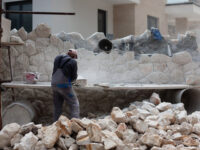How To Become A Plumber
As a plumbing professional, you will travel to various work sites every day to perform a variety of tasks. These jobs may take place in homes, factories, or office buildings. Because of the nature of the work, plumbers must be physically fit, and many plumbers will face dangerous conditions in tight spaces. They also often work outside in bad weather, so a strong suit is a necessity. Despite the demanding nature of the job, plumbers often enjoy steady incomes and full-time schedules. Many plumbers work evenings and weekends, and overtime is common. Additionally, they must be available for emergencies, which is why Plumber have to be on call all the time.

Plumbing is a highly-skilled profession, with many opportunities for growth. A plumber’s daily responsibilities vary greatly, but generally include installing and repairing pipes in homes and businesses. Pipes carry potable water, drainage, irrigation, and sewage. A plumber may also perform design work, drawing blueprints, and drafting designs to improve efficiency. Many plumbers have a wide variety of specialties, and some of the highest-paying jobs are in less common specialties.
Plumbing jobs require strong communication skills, and plumbers must understand how to read blueprints so that they can properly install or repair fixtures and appliances. They must be able to work well with other professionals, and have a comprehensive understanding of local codes. Plumbing is a diverse profession, but there are many different ways to become a plumber. You may consider becoming a plumber, if you feel your skills match the job description.
Plumbing jobs require a diverse range of skills, as plumbers must analyze problems and determine realistic solutions to them. Their job requires the ability to weigh various possible solutions and communicate clearly with customers. Some plumbers have to lift heavy tools and equipment, but the job outlook is good. The Bureau of Labor Statistics predicts that plumber jobs will grow by 15% between 2016 and 2026. However, this growth is dependent on the health of the economy. This means that the economy may not be strong in that time frame.
A plumbing career is one of the most rewarding occupations for anyone, and the rewards can be enormous. Plumbing not only brings beauty and comfort to homes, but also a safe place for people to escape stress and strain. With millions of people around the world depending on plumbing, the job is a strong economic engine and a source of livelihood for many. It helps protect populations from disease, which has probably saved more lives than any other medical advancement in history. And it continues to do so, especially in developing nations.
Plumbing jobs involve handling human waste, and plumbers must be trained in the various ways to safely dispose of the waste. For example, they must know about water pressure and force to avoid inadvertently causing harm. Additionally, plumbers must understand how to work with various complexities and materials, and they must be knowledgeable about building regulations. Therefore, plumbers should also have adequate knowledge of electrical systems and have the necessary equipment to work effectively with them.
After completing an apprenticeship program, a plumber can apply to become a master plumber. This requires a master plumber’s license, which is obtained after earning enough experience as a journeyman. Once he has gained experience, he can work independently as a journeyman plumber, with more complex duties. A journeyman plumber may also choose to specialize in certain areas of plumbing. This type of plumber will work with residential homes, and may install plumbing systems or fixtures.
Most plumbers receive their training through apprenticeship programs. Apprenticeship programs usually last four or five years and require around 2,000 hours of on-the-job training. Apprenticeships are sponsored by trade unions, and require that a person be at least 18 years old, and have a high school diploma. In addition, apprentices should have basic math skills, and a high school diploma. In order to work as a plumber, you should have a license from your state.
A plumbing apprenticeship will last approximately 14 weeks, and requires a student to earn a total of $2,239 (excluding books and fees) and pass an exam. This apprenticeship will also include training in various specialised skills certification and plumbing level one. The certifications you receive from an apprenticeship are a good indication that you have the technical expertise to safely install pipe systems. Regardless of whether or not you are eligible for federal financial aid, you should never stop learning and growing.






